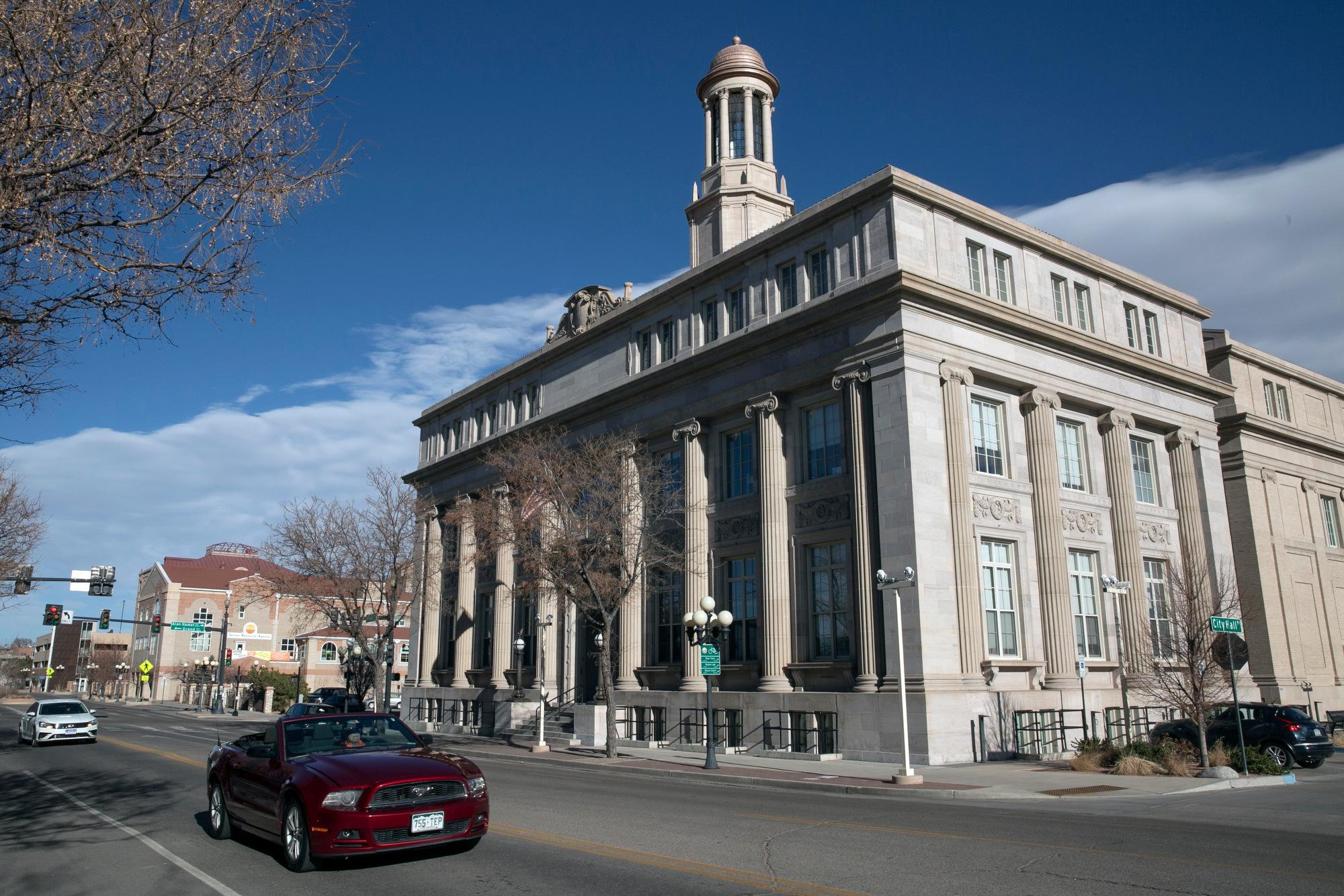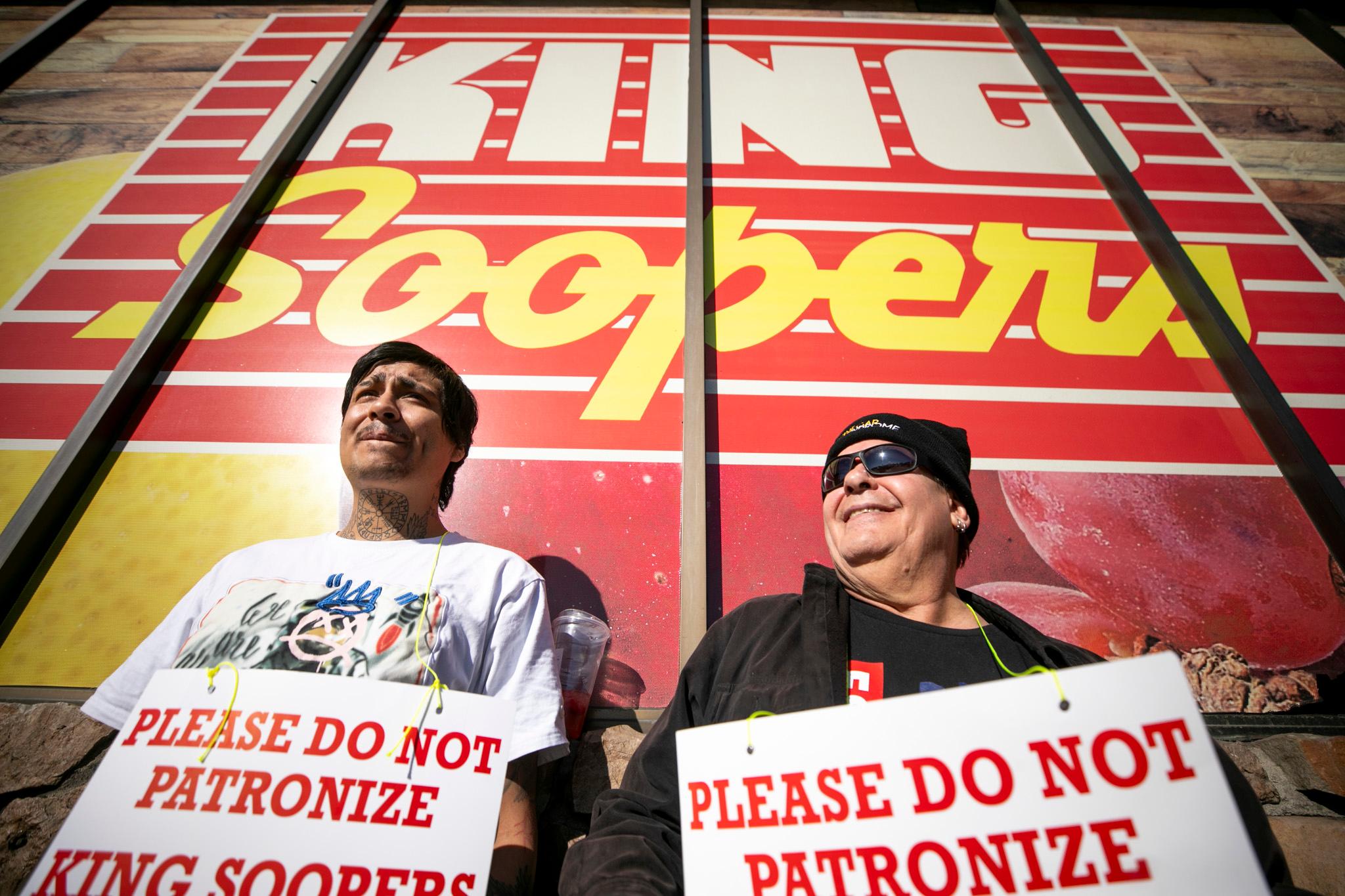
Unionized King Soopers workers across the Front Range launched a two-week strike before dawn Thursday morning. More than 10,000 workers across 77 stores in Adams, Arapahoe, Boulder, Broomfield, Denver, Douglas, and Jefferson counties marched in front of their stores — many carrying white and red signs urging customers not to “patronize King Soopers.”
Some of the key sticking points are staffing shortages, outsourcing union jobs to gig workers, health care reserves, price gouging, and eliminating seniority-based scheduling protections.
While the workers are not striking over wages, King Soopers has publicly offered to boost clerks’ hourly wage by $4.50 over four years — with some associates earning over $27 an hour by 2028. Currently, the average hourly wage for a full-time associate at King Soopers is $22.68.
But despite the size of the strike, all of the stores remained open with “impacted locations running on temporary hours,” the grocery store chain said in a press release.
“We have a responsibility to our associates and communities to ensure they have access to fresh food and other essentials,” the President of King Soopers, Joe Kelley, said in a statement.
According to strikers, the Kroger-owned grocery chain hired hundreds of temporary workers to offset the impact of the strike.
“[King Soopers’] hired them a week ago,” said Heloise Lindberg, a deli counter worker on strike at a Boulder King Soopers. “We have 38 [temporary workers] at this store. They’re from Texas, [King Soopers] flew them in and paid for their hotels.”
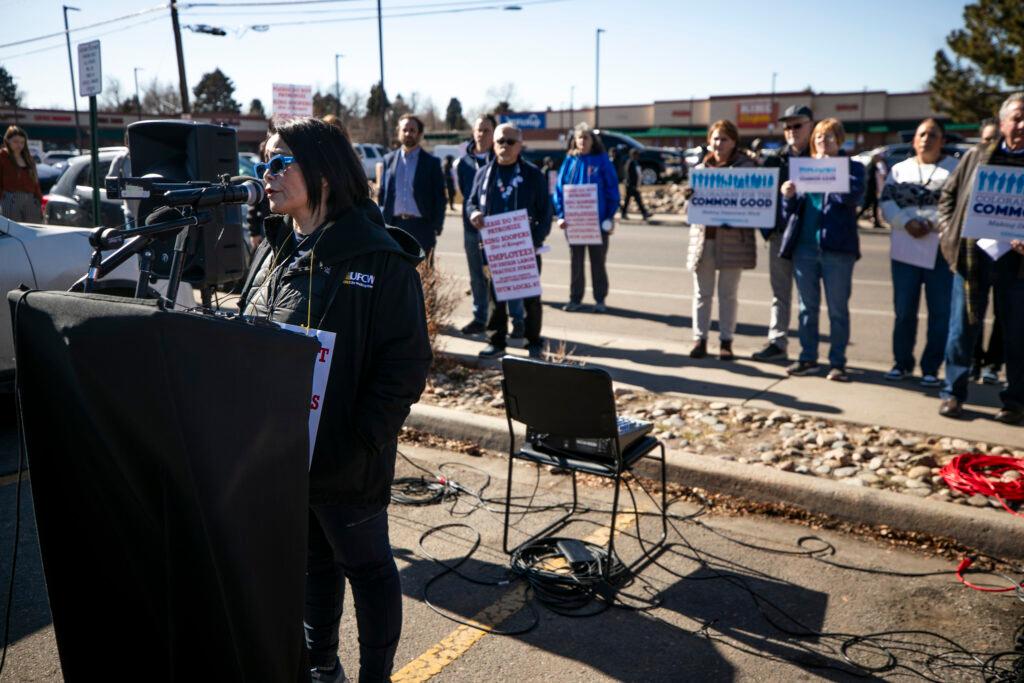
According to union president Kim Cordova, King Soopers used a staffing agency to hire the workers. She said the grocery giant trained the temps in the non-union stores in Northern Colorado.
“They're offering [the temporary workers] more money than what they're offering these workers here in our own community,” said Cordova.
King Soopers did not respond to a request for comment about the hiring of temporary workers or the claims regarding their pay.
A strategic stand
Union organizers say the strike was purposely organized directly before two big holiday weekends — the Super Bowl and Valentine’s Day.
“They don't respect their associates, they're not respecting their customers, but the one thing they pay attention to is their profit,” said Cordova at a press conference Thursday. “And we know that the Super Bowl and Valentine's Day are very important to them, and the timing is really based on the fact that they refuse to bargain. But we are well aware of what those holidays mean to this company, it's all about money.”
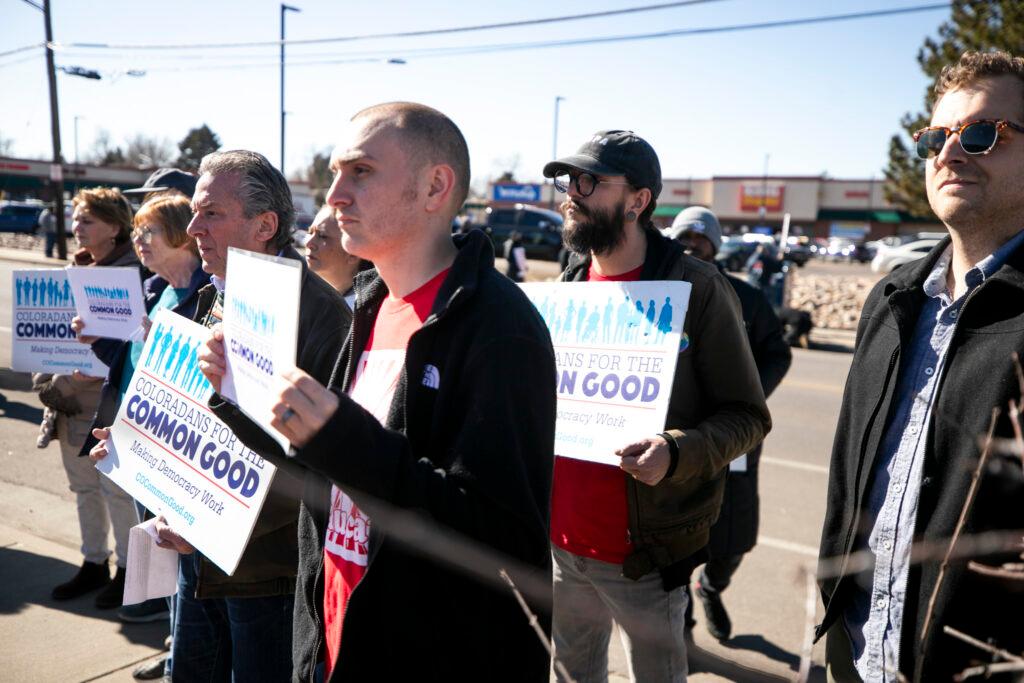
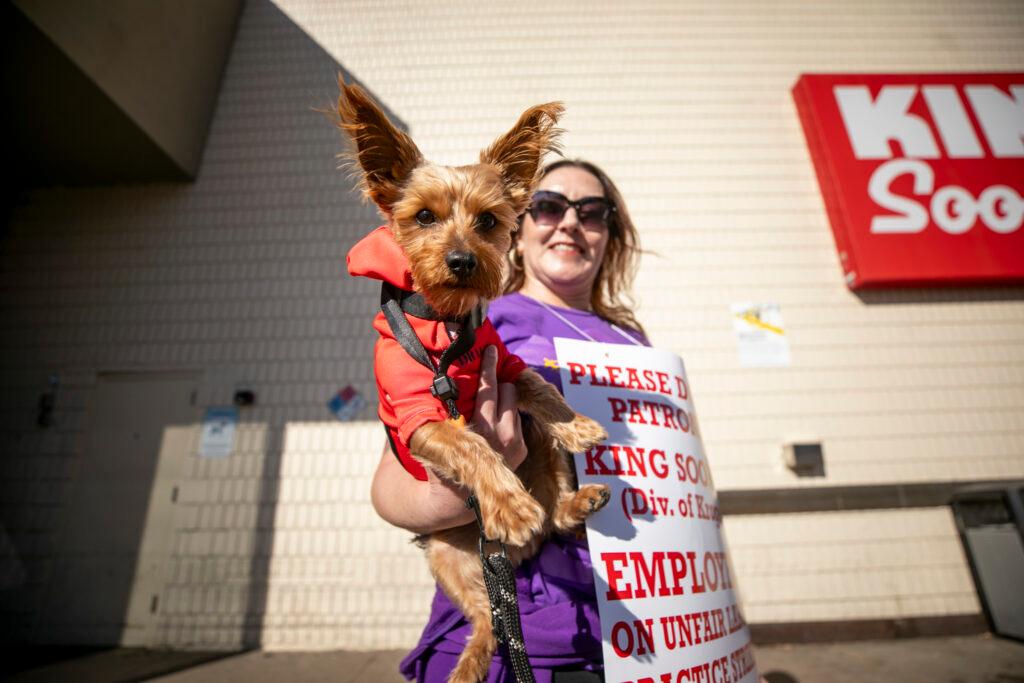
Conor Hall, a longtime King Soopers employee, has worked at the deli counter of the Table Mesa location in Boulder for more than seven years. He said he participated in the last strike two years ago, which called for better worker safety — especially after the deadly King Soopers shooting.
“This time around, one of our core issues is around staffing,” said Hall. “I think anyone who's been shopping in the stores — especially since the announcement of the merger — but year after year has seen a massive decrease in the amount of staff in the store. And that's not resulted in a decrease of work on our end.”
“So we're working harder, we're doing the work of two, three different people. We're working faster, we're working in less safe [conditions] and ultimately every day we're making choices. We're having to make the calculation of, well, what's not going to get done today? Am I not going to get everything clean? Am I not going to help every customer? Am I not going to produce everything or am I going to work fast and unsafe?”
Non-union members joined the picket lines
Former employees and community members also joined the picket lines Thursday morning.
Loyal King Soopers customer for more than 30 years, Inge Lacour, 82, not only said she plans on grocery shopping elsewhere until “things are fixed,” but she also joined the picket line of one store in Denver.
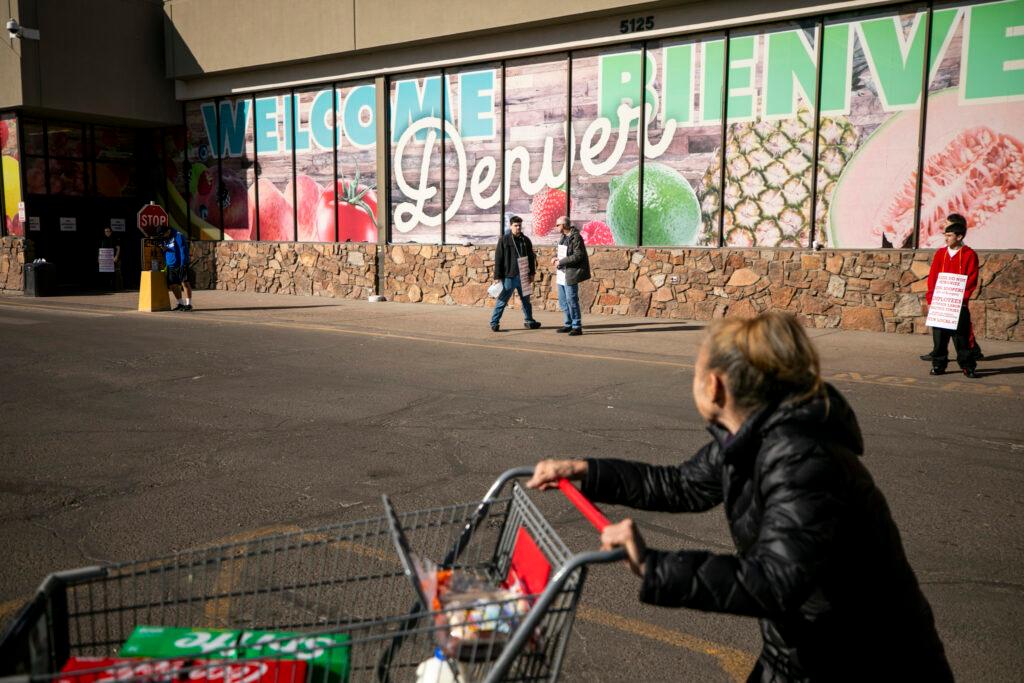
“I'm a very, very privileged woman who absolutely cannot agree what is going on in this country,” Lacour said.
A few moments later, Lacour convinced a customer to shop elsewhere.
“I just approached him very kindly and said, good morning and I said you do have a choice that is a Safeway, five minutes further down, and we would appreciate it if you would go there… And he turned around in his car and drove down to Safeway.”
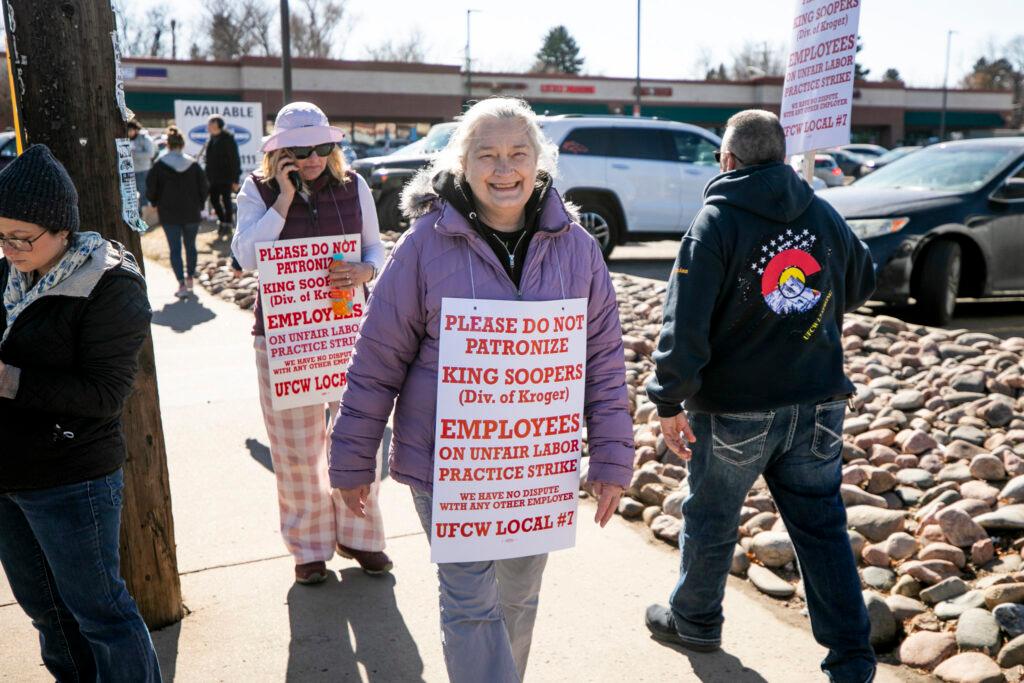
Linda Largent, a retired King Soopers employee and another non-union member, joined the picket line to support her “former coworkers and friends.” According to Largent, who started working at the King Soopers at the deli counter in 1987 and retired two years ago, “things changed over time.”
“Over time it just became more corporate,” said Largent. “Staffing got ridiculous — especially after the last strike, I think they really were trying to get us back.”
Kroger owns 118 King Soopers in Colorado and says it “respects its associates’ rights to participate in a work stoppage.”





